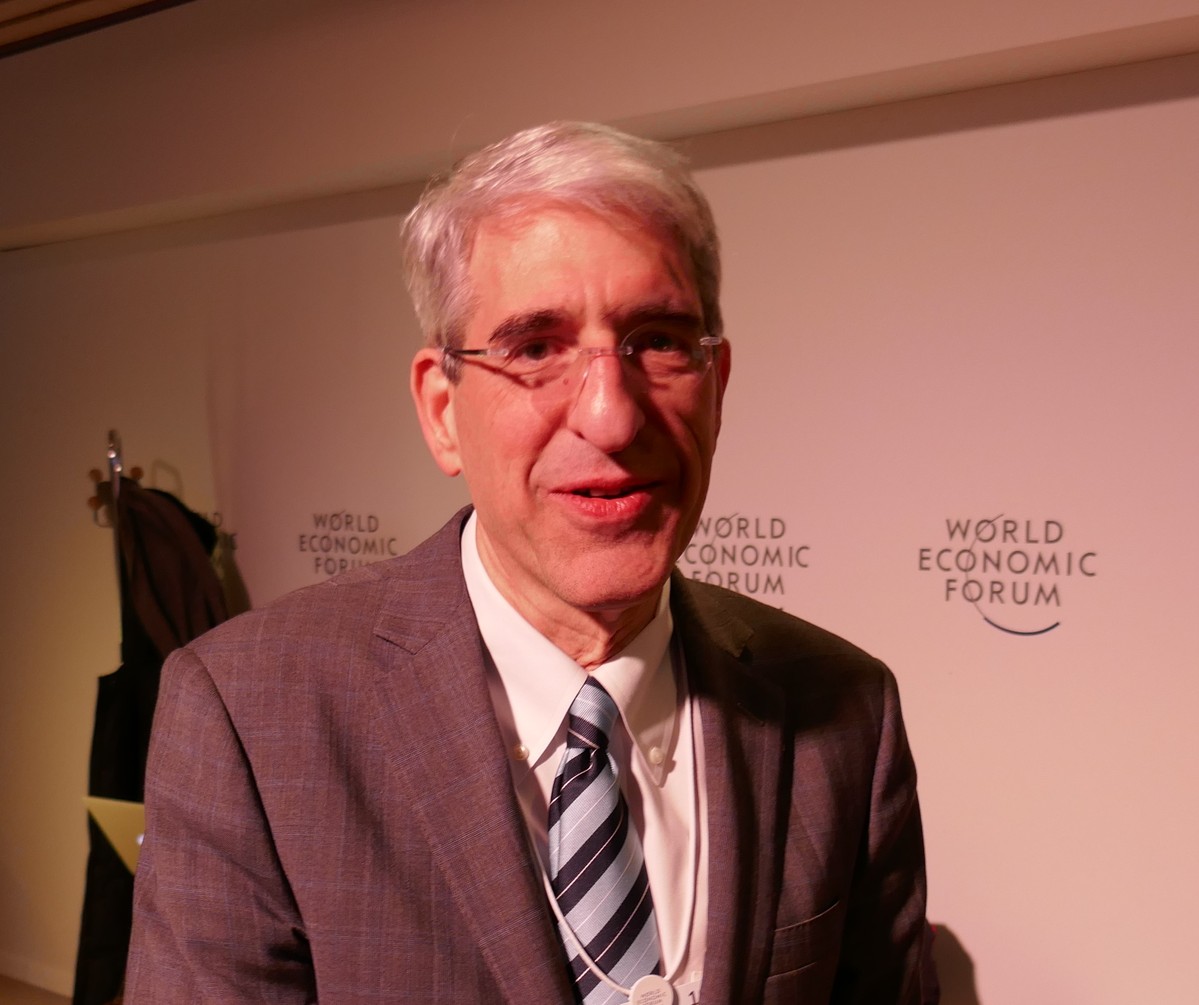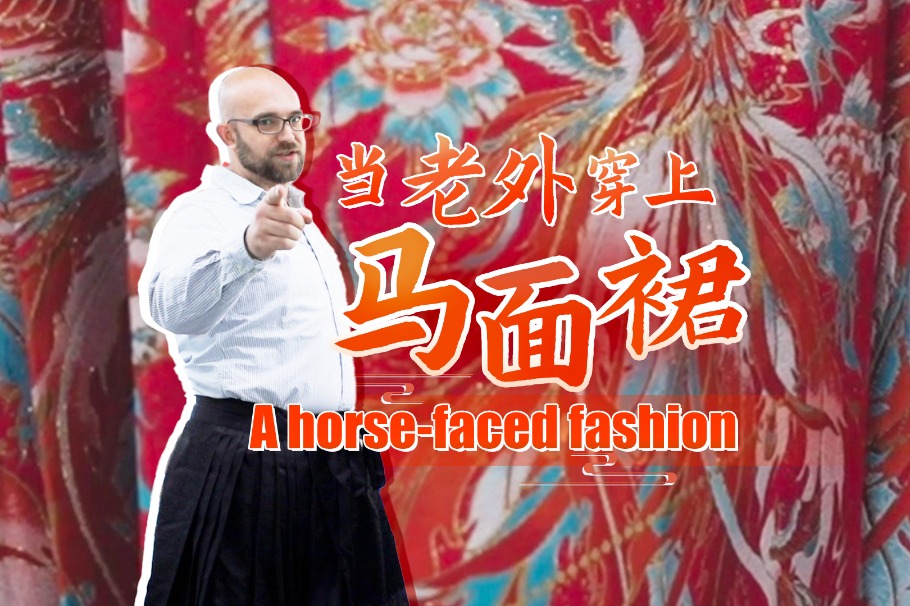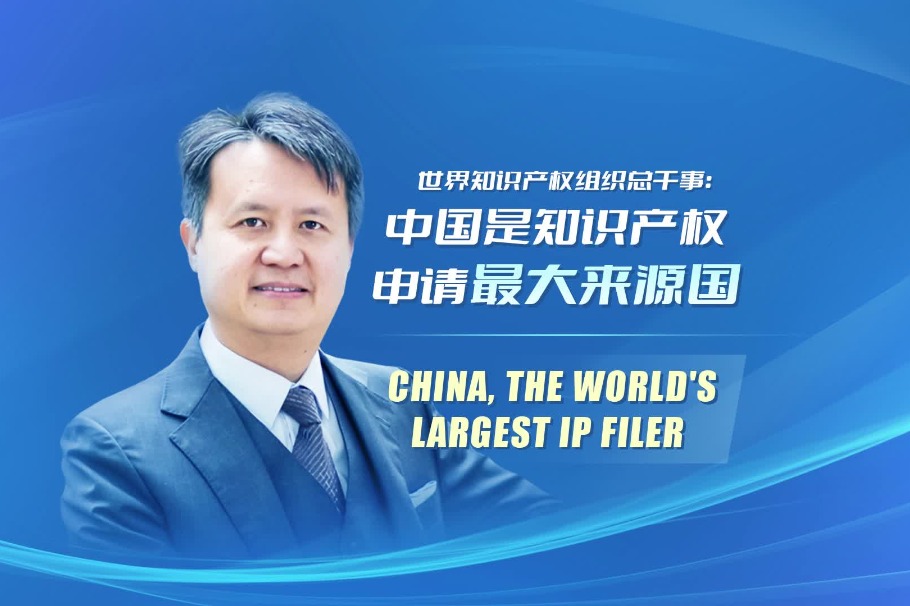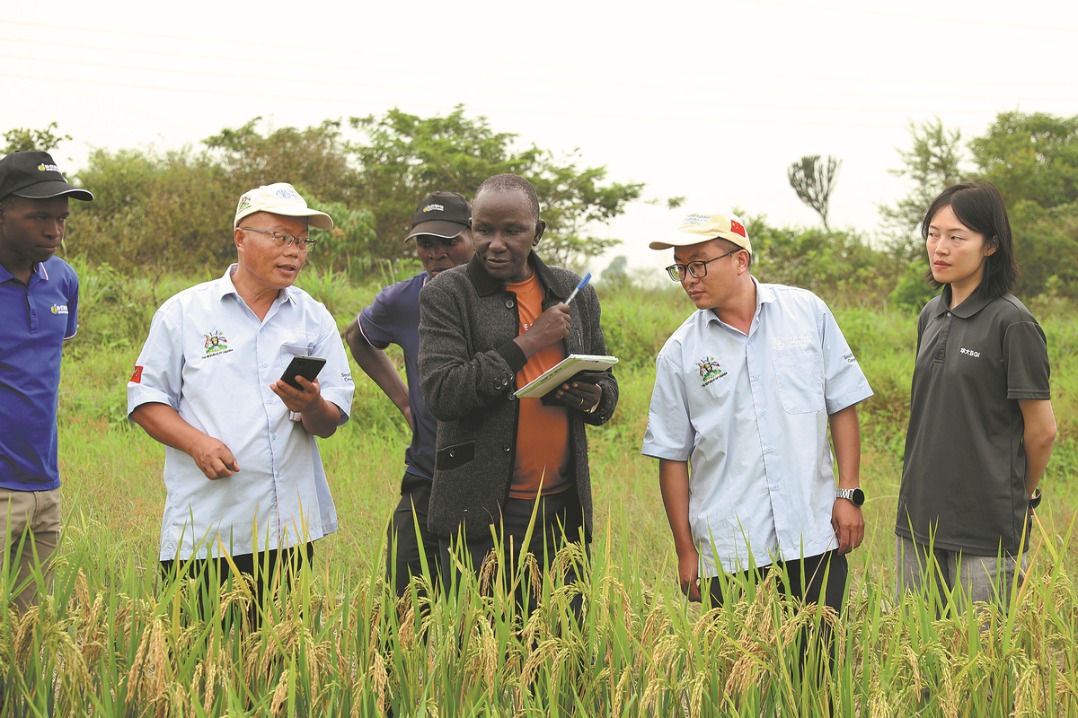Building up closer bonds
By Chen Weihua | China Daily | Updated: 2019-02-22 07:53

Despite visa curbs on Chinese students, Yale University president is calling for deeper US-China education ties, Chen Weihua reports from Davos, Switzerland.
Peter Salovey, Yale University president, says he is proud of the Ivy League institution's association with China and wants to further strengthen ties.
His comments come amid US government's tightening of visa restrictions for Chinese students and the call by some US politicians for more curbs on Chinese seeking to study in the United States.
Since June, the US State Department has shortened the length of stay from five years to one year for visas granted to Chinese graduate students studying in the so-called sensitive fields such as flight, robotics and some kinds of manufacturing.
More than 363,000 Chinese students were studying in US colleges and universities in the 2017-18 academic year, representing 33.2 percent of all international students, according to The Institute of International Education.
"We very much want and feel it's important and fundamental for universities to have a free flow of scholars, students between our countries," Salovey tells China Daily in an interview.
Yale now hosts more than 800 Chinese undergraduate and graduate students and another 800 Chinese scholars. Salovey describes the Chinese students as "incredibly talented".
While noting that a decrease in the number of Chinese students wouldn't make the university unable to function, Salovey says "we think we will be missing some of the smartest students in the world. And we think our educational environment won't be as rich".
"It will reduce opportunities for everyone if we restrict," he adds.
Yale, founded in 1701, boasts the longest relationship with China of any US university.
Yung Wing, known to Chinese as Rong Hong, became the first person from China to earn a degree from a US college or university when he graduated from Yale College in 1854. According to the Yale University website, Wing later donated a large number from his personal collection of books to Yale that formed the basis of the Yale East Asia Library's Chinese collection, regarded as one of the major collections in the US.
Zhan Tianyou, known as the "father of China's railway", graduated from Yale's Sheffield Scientific School, now integrated with Yale College, in 1881, with a degree in civil engineering. He returned to China and later built some of China's first railway lines.
"We are very proud of that history with China," Salovey says.
Salovey, who took office on July 1, 2013, and is a social psychologist by profession, believes it's important for Americans to know that the US' best friends abroad are often people who have benefited from having some part of their education in the US. He cites the trouble spot of the Middle East, where the best friends of the US are people who have been educated in the US.
"So we have to remember when a student educated in the US goes home, it's still in our national interest because they are often our friends abroad. They become ambassadors," says Salovey, who turned 61 on Thursday.
He says he thinks it's important to encourage collaboration and not to make it difficult for schools to work together in education or research.
On a global level, Salovey says he believes that none of the major problems of the world, such as climate change and inclusive growth, are going to be solved without cooperation between the world's two largest economies.
"You are not going to solve those problems seriously without the US and China working together," he says.
In his view, American and Chinese students who have had part of their education in each other's countries are some of the best people to carry out that policy work.
Many Americans who graduated from Yale have played a major role in US-China relations.
George H.W. Bush, a graduate of 1948, became the head of the US Liaison Office in China in 1974. He was followed by Winston Lord, Clark Randt Jr and Gary Locke, all Yale graduates, to become US ambassadors to China.
"So while we make sure that we compete fairly with each other and the like, I would think it's not good for either of our countries to suddenly see restrictions on the abilities of students from either country to study in the other country," he says.
Salovey has advice for the Chinese applying to Yale. He says while grades and test scores are important for undergraduate applications, Yale is looking for evidence of leadership and how students can make the most of the education they receive at Yale. That means contributing to the Yale community while studying as a student, he adds.
"We like students who enjoy collaborative learning with others, who are going to be active participants in their own education, not just passive recipients of that.
"And I am pleased to say that many students from China fit that model, those characteristics," Salovey says.
For graduate students, he says evidence and research and some scholarship is important other than grades and GRE scores. And for professional schools like law, business and medicine, they are looking for commitment to those fields and some experience.
As Yale's president, Salovey now travels to China about three times a year, mostly for the university's joint programs in China and its alumni events there.
More than 150 Yale faculty members are pursuing a broad area of research, educational and training activities in and related to China. Yale faculty members are currently engaged in projects in 22 cities involving scores of Chinese universities, hospitals, research institutions and other organizations, according to the Yale website.
Yale's School of Forestry and Environmental Studies and Tsinghua University's School of Environment have a dual-degree program, while the Yale School of Public Health provides dual degrees with Shanghai Jiao Tong University and Zhejiang University.
Yale unveiled a 1,533-square-meter Yale Center Beijing in 2014 in the Chinese capital to enable it to expand existing activities and form new partnerships with organizations in China, support research and study in Yale's schools and serve as a gathering place for its alumni in Asia.
"I like to go to events where we celebrate higher education," he says of his China trips, citing his attendance of the 120th anniversary of Peking University in Beijing in May, when he delivered a key speech.
Yale has established several joint programs with Chinese universities, which Salovey says are as a result of the collaboration between professors and researchers at Yale and Chinese universities.
Yale has focused on joint programs with China's top educational institutions, such as Peking University, Tsinghua University, Fudan University and Shanghai Jiao Tong University.
"Anything is possible if our professors are in a cooperative relationship with professors from China. We can do a formal institutional program around that faculty-faculty cooperation," Salovey says.
Contact the writer at chenweihua@chinadaily.com.cn
























